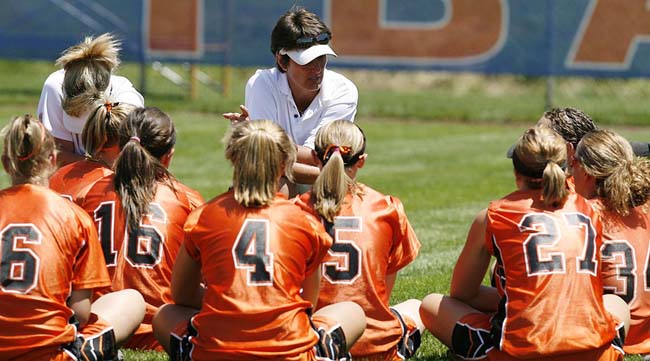As students, we are all on terms with stress. They might not be friendly terms, but stress is certainly no stranger to any of us. Classes alone are enough to make your head spin, and when you pile on a cappella, club sports, Greek life, internships, this council, that committee and all of the hundreds of activities that students participate in, the fine line between stressed and unhealthy is difficult to recognize. Add to all of that the time and energy devoted to friends, family and personal hobbies, and mental health gets pushed onto a back burner that isn’t even lit.
Now imagine how a student athlete feels. Not only are college athletes expected to give their best performances in class, but they’re also expected to give peak performances at events. Some even juggle multiple activities on top of class and athletics.
Last spring, Georgetown University Medical Center published a study saying that college athletes today are more at risk for depression than in past years. The reason? Ever-increasing levels of stress bombarding them from all sides.
Academic workload, high-intensity training, the pressure to deliver results and inadequate amounts of sleep all take a huge toll on college athletes, both physically and mentally. Lack of sleep from late night studying can lead to fatigue. Intense training paired with fatigue and performance anxiety makes injuries more likely, and the fear of injuries also bolsters anxiety. The stress that results can make these students more susceptible to depression, anxiety and mood disorders, and in some cases even suicidal actions.
So what needs to be done? The College of William and Mary offers a variety of resources to help athletes and students alike with mental health issues, such as the counseling center and a sports psychologist. During orientation week, all students — including athletes — are briefed on where to go and what to do if they’re feeling bogged down by stress. All of these resources are great, but availability of resources isn’t the problem.
Athletes are constantly busy with something, whether that is sports, schoolwork or extracurricular activities. Sometimes their own mental health gets lost in the mix and even they don’t realize what’s happening to them. Blindly offering resources doesn’t solve anything for people who are too wrapped up in their stress to find time for themselves. While the College is on the right track regarding mental health services, it needs to find better ways to push students, notably athletes, towards prioritizing their own mental health.
The suicide of University of Pennsylvania track team member Madison Holleran is a tragic example of what can happen when athletes are left alone with their stress. Struggling student athletes can’t always be expected to share their problems of their own volition just because they are told that there’s a counselor on campus. Coaches, trainers and staff need to have the mental health discussion with their teams before something tragic happens, not because something tragic has happened.
I’m not saying that all athletes have poor mental health practices and should be forced into therapy, but I do think preventive measures should be taken to ensure that athletes know they have support consistently available.
As a coach, trainer or teammate, all you have to start with is, “Are you stressed?” Email your team the link to the College’s Mental Wellness page. Talk to your team members about what signs of stress to look for in themselves and others. Have a team discussion about how to manage school and sports. Do something to get the conversation started.
When Holleran committed suicide, the general response was shock because she was a beautiful, extremely intelligent and athletic young woman. No one knew what she was coping with inside because no one asked. The College’s athletics program needs to consistently initiate discussions about mental health with athletes. Don’t wait for your athletes to come to you.
Email Kaitlan Schaub at kcshaub@email.wm.edu.

